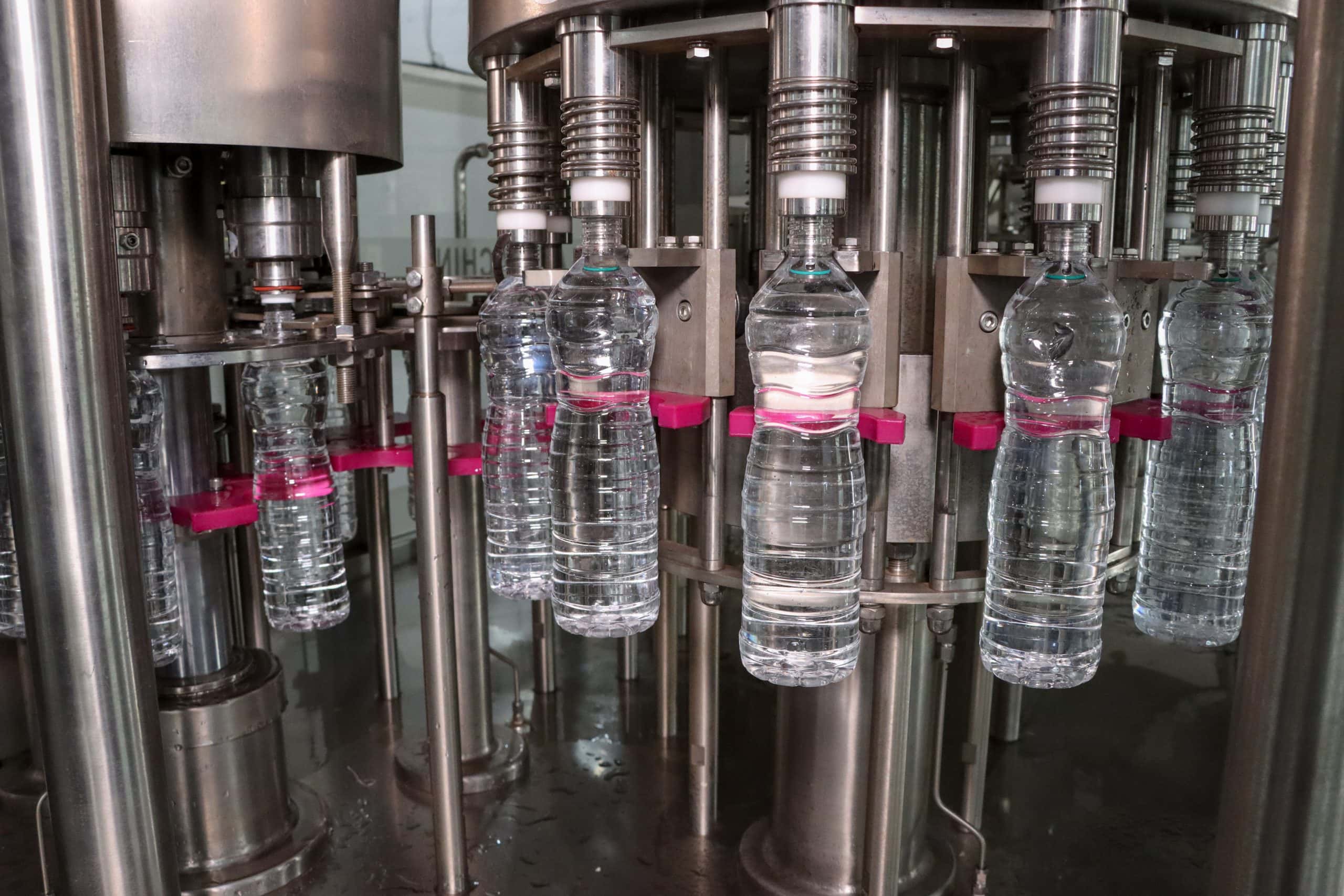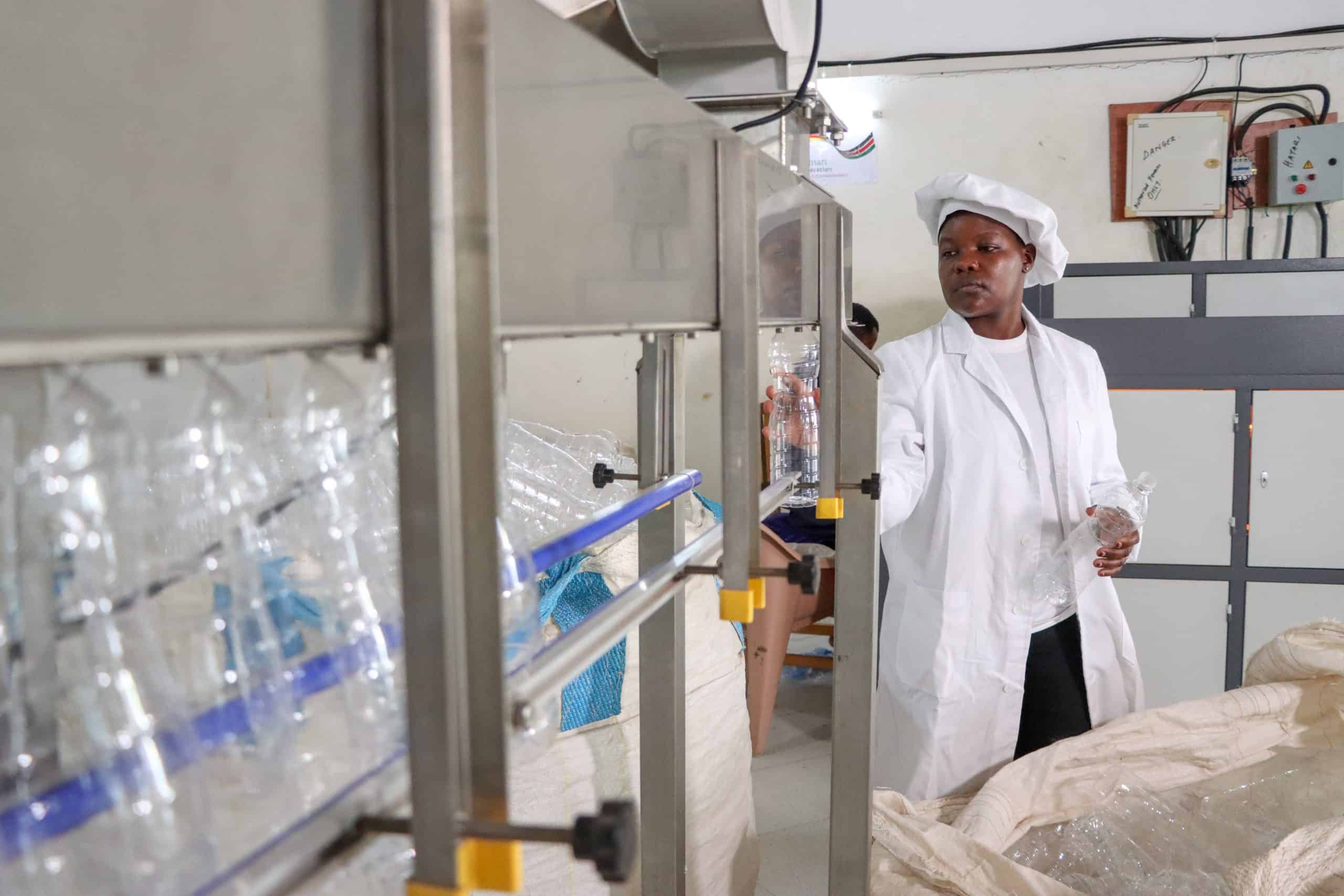At the height of COVID-19 in 2020, Isiah Mutua decided to drive from Nairobi to Kakuma to escape the government’s stringent lockdown measures to contain the spread of the pandemic.
Unlike the densely populated Nairobi, where the measures were implemented to the letter, there was relative freedom in Kakuma town. Kakuma is a rural settlement in northwestern Kenya within Turkana County, characterized by its arid and semi-arid environment and large swathes of open land.
A stay in the town, which hosts one of the largest refugee camps in the world, would provide Mutua with a serene environment, beautiful scenery, and unfettered movement, ideal for someone looking for a holiday escape.
However, the vacation offered the young entrepreneur, who first visited the town in 2018, an opportunity to pilot a clean energy project. He gave birth to the idea of a water business that would eventually grow into a multi-million company, quenching the thirst of hundreds of Kakuma residents every day.
“When I returned to Kakuma at the height of the pandemic, I noticed the company supplying bottled water during my first visit had left the market. In 2018, we consumed 3 to 4 liters of water daily. I saw an opportunity to start a water business,” says Mutua. In 2021, he began the groundwork, conducted research, and went through the licensing processes, and before the end of the year, Lifta, a beverages manufacturing company, was operational.
Kakuma hosts about 300,000 refugees from various nationalities, particularly South Sudanese, Somalis, Congolese, Kenyans, and foreign nationals working with agencies or running businesses. This offers a massive opportunity for a water-selling business.
Seasonal rivers and deep wells drilled to access underground water, often saline, are the primary sources. However, the water is not treated, exposing locals to waterborne diseases like diarrhea. The local groundwater requires significant treatment to meet World Health Organisation (WHO) standards.
“Sometimes chlorinated water was being distributed, but it wasn’t adequately treated for safe drinking. We decided to install reverse osmosis equipment, which is expensive but ensures that our water meets safety standards. Every bottle we produce is safe and high-quality,” explains Mutua.
Lifta’s mission is to provide quality, affordable food and beverage products to northern Kenya, starting with water, and it is looking to expand into carbonated beverages and other products in the future.
This mission aligns with the Kakuma Kalobeyei Challenge Fund’s (KKCF) ambition to support businesses actively serving communities within the refugee context.

Through a partial grant fund, Lifta imported machinery for a water-filling line. Acquiring the equipment locally would have cost about $350,000 (40 million Kenyan shillings), but thanks to the fund’s support, they imported it at a lower cost.
Lifta has also secured an additional grant from KKCF through the Private Sector Window to procure a 20-liter bottle-blowing machine, which will enable them to offer affordable refillable water options. The machine will reduce the cost of one liter of water from Ksh50 to about Ksh10, making safe drinking water accessible to more people in the area.
According to the KKCF Program Manager, Brian Murithi, the five-year project’s goal was to identify and support the private sector by making its services and products available within the Kakuma market.
Many investors are discouraged from setting up businesses in Kakuma due to poor infrastructure and lack of access to finance. This makes goods and services very expensive because of the costs involved in accessing them from far away. Yet a study by the International Finance Corporations (IFC), dubbed Kakuma as a Marketplace in 2018, shows that Kakuma has a very vibrant economy that is not well exploited.
“Many of the businesses operating in the area lacked technical capacity and financial support, and it was realized that if living the conditions for the host and refugee communities were to be improved, then a private sector kind of model was required to support the businesses that were already operating there, and scale them up to a level of self-sustainability,” says Brian.
Lifta has impacted the refugees and host communities, especially women and the youth, through job creation and economic empowerment, and it currently has 57 employees. “We have hired many women, including refugees and host community members. Seven of the ten key distributors for our 20-litre bottles are women-owned shops. We also plan to install vending machines in these shops to support their businesses and improve their socio-economic status,” explains Mutua.
At the Kalobeyei Settlement, Kumala Muktar, who fled the war in Somalia, is one of the distributors ensuring the locals have access to clean drinking water. Muktar was first hosted at the Dadaab refugee camp when he arrived in Kenya in 2007 before being transferred to Kakuma.
When he arrived at Kalobeyei, access to clean drinking water was a huge challenge, and residents would travel across the town in search of the commodity. “Getting clean and safe drinking water was not easy, but since Lifta began supplying bottled water, we rarely see outbreaks of waterborne diseases, unlike before,” says Muktar.
To address environmental concerns related to plastic waste, the company procured a plastic recycling machine, also funded by KKCF. For every bottle it distributes, it targets collecting two, which are crushed and recycled to minimize environmental impact.
All their employees undergo a rigorous training session before onboarding. The training includes education on their rights and responsibilities and a zero-tolerance policy toward gender-based violence.
KKCF provided funds to help install the company’s water treatment and bottling plant and business development support. The support included training in business management, recordkeeping, community engagement, and compliance with ESG standards. Mutua says five team members attended these sessions, enabling them to implement better systems and manage the business remotely while maintaining efficiency.
In the next two to three years, Lifta looks to expand its product line, enhance production capacity, and increase community engagement. “KKCF has already provided immense support, but additional assistance in scaling production and accessing new markets would help us achieve our vision,” concludes Mutua.
